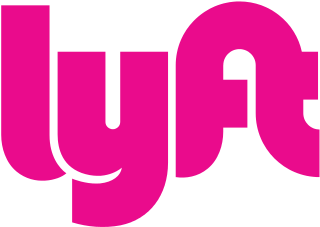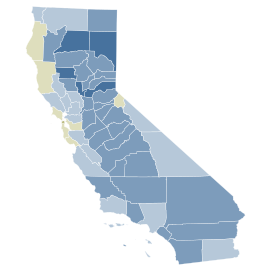
The GMB is a general trade union in the United Kingdom which has more than 460,000 members. Its members work in nearly all industrial sectors, in retail, security, schools, distribution, the utilities, social care, the National Health Service (NHS), ambulance service and local government.
The digital economy is an economy that is based on digital computing technologies but is often perceived as conducting business through markets based on the internet and the World Wide Web. It is also known as the Internet Economy, New Economy, or Web Economy. The digital economy is intertwined with the traditional economy, making a clear delineation harder. The digital economy results from billions of everyday online connections among people, businesses, devices, data, & processes. It is based on the interconnectedness of people, organizations, and machines that results from the Internet, mobile technology and the internet of things (IoT). Without the Internet, the digital economy that the global economy runs on would not exist in its current form.

Lyft, Inc. is an American transport service support provider that develops, markets, and operates a mobile app, offering ride-hailing, vehicles for hire, motorized scooters, a bicycle-sharing system, rental cars, and food delivery. It is based in San Francisco, California and operates in 645 cities in the United States and 10 cities in Canada. Lyft does not own any vehicles; instead, it receives a commission from each booking. Fares are quoted to the customer in advance but vary using a dynamic pricing model based on the local supply and demand at the time of the booking.

Delivery Hero is a German multinational online food-delivery service based in Berlin, Germany. The company operates in 50+ countries internationally in Europe, Asia, Latin America and the Middle East and partners with 500,000+ restaurants. Delivery Hero has increasingly branched out beyond food delivery, and is a leading player in the emerging category of quick commerce, which delivers small batch orders in under an hour.
In capitalism, the sharing economy is a socio-economic system built around the sharing of resources. It often involves a way of purchasing goods and services that differs from the traditional business model of companies hiring employees to produce products to sell to consumers. It includes the shared creation, production, distribution, trade and consumption of goods and services by different people and organisations. These systems take a variety of forms, often leveraging information technology to empower individuals, corporations, non-profits and government with information that enables distribution, sharing and reuse of excess capacity in goods and services.

A ridesharing company is a company that, via websites and mobile apps, matches passengers with drivers of vehicles for hire that, unlike taxicabs, cannot legally be hailed from the street.
Many communities, governments, and organizations have established rules and regulations that specifically govern ridesharing companies. In some jurisdictions, for-profit ridesharing operations are completely illegal. Regulations can include requirements for driver background checks, fares, the number of drivers, and licensing.
A platform cooperative, or platform co-op, is a cooperatively owned, democratically governed business that establishes a computing platform, and uses a website, mobile app or a protocol to facilitate the sale of goods and services. Platform cooperatives are an alternative to venture capital-funded platforms insofar as they are owned and governed by those who depend on them most—workers, users, and other relevant stakeholders.

The Independent Workers' Union of Great Britain (IWGB) is a fully independent trade union in the United Kingdom. The IWGB comprises eleven branches which organise workers within their chosen industry, run their own campaigns and have their own representative officials. Their members are predominantly low paid migrant workers in London. The IWGB began as a breakaway from Unite and UNISON. The dispute stemmed from disagreements over how to get better working conditions for cleaners at the University of London, and, more broadly, about how to run modern trade unions. The IWGB is one of the main trade unions in challenging employment law relating to the 'gig economy'.

inDriver is an international ride-hailing service with more than 100 million users operating in 45 countries. It is the second largest ridesharing and taxi app worldwide by downloads. The company operates in Nepal, Russia, Egypt, Kazakhstan, Kyrgyzstan, Paraguay, Uzbekistan, Armenia, Botswana, Brazil, Mexico, Guatemala, Colombia, Peru, El Salvador, Chile, Ecuador, Costa Rica, Panama, Honduras, Dominican Republic, Bolivia, Nicaragua, Tanzania, South Africa, Kenya, Morocco, Uganda, Nigeria, Vietnam, India, Indonesia, Malaysia, Thailand, and Pakistan. The company was founded in 2013.
A series of general strikes was coordinated on March 25, 2019 by Lyft and Uber drivers in Los Angeles, San Diego and San Francisco, California, United States led by rideshare advocate group Rideshare Drivers United. The strikes aimed to protest low wages, long hours, working conditions, and lack of benefits. The event was planned following Lyft's initial public offering. A second strike took place on May 8, 2019 in anticipation of Uber's initial public offering. The strike in response to Uber's IPO took place in 25 major cities across the United States, and were also joined by drivers in other locations worldwide where Uber operates.

Gig workers are independent contractors, online platform workers, contract firm workers, on-call workers, and temporary workers. Gig workers enter into formal agreements with on-demand companies to provide services to the company's clients.
California Assembly Bill 5 or AB 5 is a state statute that expands a landmark Supreme Court of California case from 2018, Dynamex Operations West, Inc. v. Superior Court ("Dynamex"). In that case, the court held that most wage-earning workers are employees and ought to be classified as such, and that the burden of proof for classifying individuals as independent contractors belongs to the hiring entity. AB 5 extends that decision to all workers. It entitles them to be classified as employees with the usual labor protections, such as minimum wage laws, sick leave, and unemployment and workers' compensation benefits, which do not apply to independent contractors. Concerns over employee misclassification, especially in the gig economy, drove support for the bill, but it remains divisive.

Proposition 22 was a ballot initiative in California on the November 2020 state election which passed with 59% of the vote and granted app-based transportation and delivery companies an exception to Assembly Bill 5 by classifying their drivers as "independent contractors", rather than "employees", thereby exempting employers from providing the full suite of mandated employee benefits while instead giving drivers new protections of:
Rideshare Drivers United is a lobbying group that advocates for the interests of rideshare drivers in California.

The Indian Federation of App-based Transport Workers (IFAT) is a trade union federation of ride-sharing and other gig transport workers. In India, this includes the workers on platforms such as Ola, Uber, Swiggy, Zomato, Rapido and Dunzo. The federation is affiliated with the International Transport Workers Federation.
The Drivers Cooperative or Co-Op Ride is an American ridesharing company and mobile app that is a workers cooperative, owned collectively by the drivers. The cooperative launched in May 2020 in New York City, with the first 2,500 drivers issued their ownership certificates in a media event.
The All India Gig Workers Union (AIGWU) is a trade union federation of gig economy workers, predominantly in food delivery, in India. The federation is affiliated with the Centre of Indian Trade Unions.
The Professional E-Hailing Drivers and Private Owners Association (PEPDA) is a trade union federation of ridesharing and other gig transport workers. In Nigeria, these workers primarily work for Uber and Bolt. The federation is affiliated with the Trade Union Congress of Nigeria.























 [5]
[5] 







